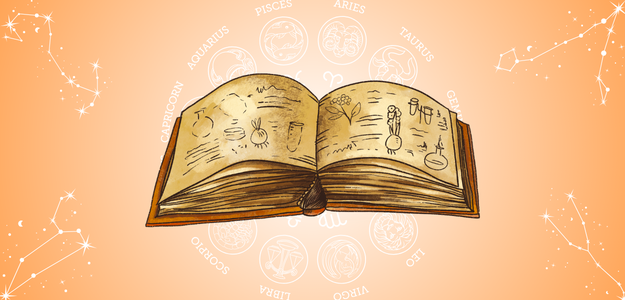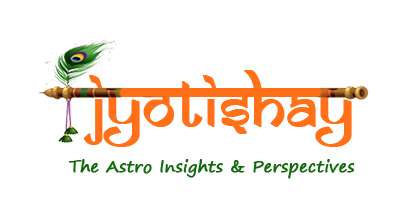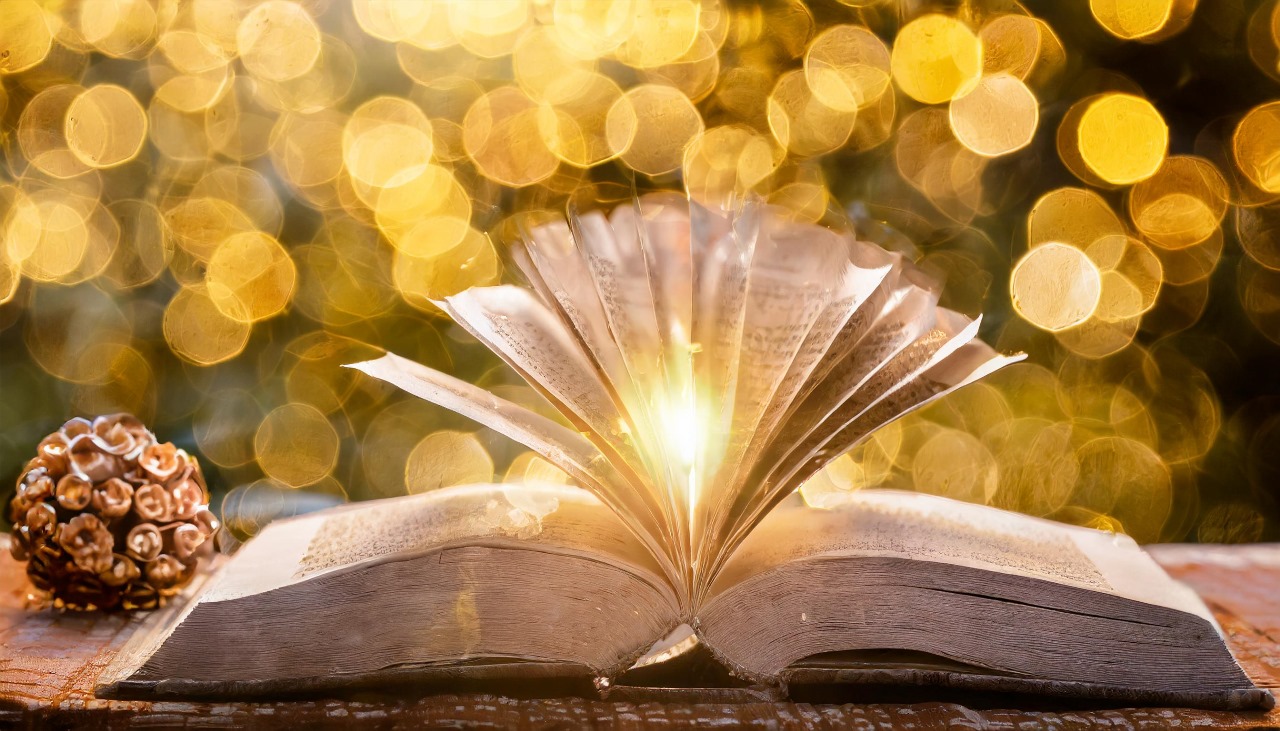Blogs

Origin and evolution of Indian Jyotish Shastra?
Jyotish Shastra, also known as Vedic astrology, is an ancient system of divination and prediction that originated in India. It is a Sanskrit term, with "jyoti" meaning "light" or "heavenThe word "JyotFrom its humble beginnings in ancient India to its modern-day applications, Jyotish Shastra has evolved into a profound system that continues to shape lives and guide individuals towards self-discovery.
Are you ready to delve into the enchanting origins and evolution of Indian Jyotish Shastra? Join us on this fascinating journey as we uncover the roots, trace its early development, explore its influences from Hinduism and Vedic texts, witness its growth over time, examine controversial aspects surrounding it, and understand why it remains relevant even in our fast-paced digital age.
Buckle up for an enlightening adventure through time as we unlock the secrets that lie within Indian Jyotish Shastra!
The Roots of Indian Astrology
Indian astrology, also known as Jyotish Shastra, has a rich and ancient history that dates back thousands of years. Its origins can be traced to the Vedic period, where it was deeply intertwined with the Hindu religion and philosophy.
In this ancient era, sages and seers observed the movements of celestial bodies and their correlation with human life on Earth. They believed that these heavenly bodies held significant influence over our destiny and could provide valuable insights into various aspects of our lives.
The Vedas, which are considered to be one of the oldest texts in the world, contain references to astrology. The Rigveda mentions nakshatras (lunar mansions) while the Atharvaveda discusses astrological remedies for planetary afflictions.
During this time, astrology served not only as a means to predict future events but also as a tool for self-awareness and spiritual growth. It was seen as a way to understand one's purpose in life and align oneself with cosmic energies.
As centuries passed, Indian astrology evolved further through interactions with other civilizations such as Greek, Persian, and Arab cultures. These exchanges brought new techniques like horoscope charts based on birth details.
Today, Jyotish Shastra continues to thrive in India. It is widely practiced by astrologers who offer guidance on various aspects including career choices, marriage compatibility, health concerns, financial prospects,and more.
While some view Indian astrology skeptically or dismiss it as pseudoscience,the enduring popularity suggests its relevance among millions who seek solace,counseling,and insight from this age-old tradition.
Early Evolution of Jyotish Shastra
The early evolution of Jyotish Shastra, also known as Indian astrology, can be traced back to ancient times. It is believed that the roots of Jyotish Shastra lie in the Vedas, the sacred scriptures of Hinduism. These texts contain a wealth of knowledge about celestial bodies and their influence on human life.
In its initial stages, Jyotish Shastra focused primarily on astronomy and understanding the movements and positions of celestial objects. Astrologers observed the patterns in these movements and made correlations with human events and experiences. Over time, this evolved into a more sophisticated system that included predictions based on birth charts or horoscopes.
The early practitioners of Jyotish Shastra were highly respected scholars who dedicated their lives to studying the stars and planets. They developed complex mathematical calculations to determine planetary positions accurately. This knowledge was then used to make predictions about various aspects of an individual's life, such as career, relationships, and health.
During this period, astrology played a crucial role in society. Kings consulted astrologers before making important decisions like declaring war or signing treaties. People sought guidance from astrologers for auspicious times for rituals or starting new ventures.
As time went by, astrology became deeply intertwined with Hinduism and its religious practices. The belief in karma (the law of cause and effect) influenced astrological interpretations wherein one's actions in past lives would have consequences reflected in their current birth chart.
With each passing century, Jyotish Shastra continued to evolve further through interactions with other cultures like Greek astrology during Alexander's conquests or Persian influences during Mughal rule.
Today, modern technology has revolutionized how we practice astrology but hasn't diminished its significance among millions of people across India who still rely on it for guidance in various aspects of life.
Jyotsih Shastra continues to hold immense cultural and historical importance in India, preserving its rich legacy for future generations to explore
Influence of Hinduism and Vedic Texts on Jyotish Shastra
Jyotish Shastra, also known as Indian Astrology, has deep roots in Hinduism and is intricately connected to the ancient Vedic texts. The influence of these religious and philosophical traditions on Jyotish Shastra cannot be overstated.
In Hinduism, astrology is considered a sacred science that provides insights into one's past, present, and future. It is believed that the movement of celestial bodies affects human life in various ways. This belief finds its origins in the Vedas - the oldest scriptures of Hinduism.
The Rigveda mentions astronomical observations and their significance for human existence. The Yajurveda contains hymns dedicated to specific celestial deities like Surya (the Sun) and Chandra (the Moon). These hymns highlight the interplay between cosmic forces and individual destinies.
The Atharvaveda features verses related to astrology, including methods for predicting eclipses. It emphasizes the importance of astrological knowledge for maintaining harmony with nature and achieving spiritual enlightenment.
Later texts such as Brihat Parashara Hora Shastra expanded upon these foundational principles by providing detailed guidelines for casting horoscopes, interpreting planetary positions, and making predictions based on birth charts.
The fusion of Hindu religious beliefs with astrological practices gave rise to a rich tapestry of rituals, remedies, and customs aimed at appeasing planetary influences. From performing yagnas (fire rituals) to wearing gemstones associated with specific planets – these practices are deeply ingrained in Indian culture even today.
In conclusion,
Hinduism's profound reverence for astrology has played a pivotal role in shaping Jyotish Shastra into what it is today. With its strong connection to Vedic texts combined with evolving interpretations by scholars over centuries, this ancient art continues to thrive as an integral part of Indian society. Its enduring legacy is a testament to its relevance and the deep-seated belief in
Development and Growth of Jyotish Shastra
Jyotish Shastra, the ancient Indian system of astrology, has undergone significant development and growth throughout its history. Over the centuries, it has evolved into a complex and comprehensive discipline that encompasses various aspects of human life.
In its early stages, Jyotish Shastra primarily revolved around divination and predicting celestial events. However, as time passed, scholars began to delve deeper into studying planetary movements and their impact on individuals' lives.
One crucial factor in the development of Jyotish Shastra was the influence of Hinduism and Vedic texts. The Vedas provided a strong foundation for astrological concepts by emphasizing the interconnectedness between cosmic forces and human existence.
As knowledge expanded, different branches within Jyotish Shastra emerged. These included horoscopic astrology (casting birth charts), predictive astrology (foretelling future events), medical astrology (diagnosing health issues), and even electional astrology (choosing auspicious timings for specific activities).
With advancements in technology, including computers and software programs dedicated to Jyotish calculations, this traditional practice found new avenues for growth in modern times. Today, people can access personalized horoscope readings online or consult professional astrologers who combine traditional wisdom with contemporary interpretations.
However, it's important to note that despite its popularity among millions in India today, there are controversies surrounding Jyotish Shastra as well. Critics argue about its scientific validity while others debate over individual interpretations versus deterministic predictions.
Regardless of these debates though,the enduring legacy of Jyotish Shastra is undeniable.
With its deep roots in ancient traditions combined with ongoing developments,it continues to play a significant role in many Indians' lives.
Drawing upon centuries-old wisdom,Jytois shastras offers guidance,reassurance,and insight into our place within the vast cosmos
Modern Applications and Relevance
In today's fast-paced world, where technology reigns supreme, it may seem surprising that ancient practices like Jyotish Shastra still hold relevance. However, the truth is that Jyotish Shastra has adapted to the modern era and found its place in various aspects of our lives.
One of the key areas where Jyotish Shastra finds application is in personal consultations. Individuals seek guidance from Jyotish experts to gain insights into their life path, relationships, career choices, and overall well-being. By analyzing birth charts and planetary alignments, Jyotish practitioners provide valuable advice for making informed decisions.
Another significant application of Jyotish Shastra lies in compatibility assessments for marriages or partnerships. Matching horoscopes can help determine the compatibility between two individuals based on factors such as temperament, values, and future prospects. This practice continues to play a vital role in Indian society when it comes to arranging marriages or even choosing life partners.
Jyotish Shastra also extends its reach into financial matters. Many businesses consult astrologers before making strategic decisions or investing large sums of money. By studying planetary positions and their influence on wealth accumulation or loss potential, business owners can make more informed choices that align with cosmic energies.
Interestingly enough, even politicians turn to astrology for guidance during elections or important political events! Astrological predictions are believed to offer insights into favorable periods for campaigning or decision-making – an added tool in their quest for success.
Moreover, many people find solace by using astrology as a means of self-reflection and personal growth. It provides them with a framework through which they can understand themselves better – their strengths,
weaknesses,
and potential challenges.
By gaining this understanding,
individuals strive towards self-improvement
and finding balance within themselves
and their surroundings.
Despite criticisms surrounding the accuracy of predictions made by astrologers,
the enduring popularity and modern applications of Jyotish Shastra cannot be denied
Controversies and Criticisms
Jyotish Shastra, like any ancient practice, has faced its fair share of controversies and criticisms over the years. One of the main criticisms is that astrology, including Jyotish Shastra, lacks scientific evidence and is based on mere superstition. Skeptics argue that there is no concrete proof to support the claims made by astrologers.
Another criticism revolves around the notion of fate versus free will. Critics argue that Jyotish Shastra promotes a fatalistic view of life where individuals are bound by their predetermined destinies. They believe that this can be disempowering for people who want to take charge of their lives.
Moreover, some critics question the accuracy and reliability of astrological predictions. They argue that astrologers often make general statements that could apply to anyone, leading people to believe in false prophecies.
Additionally, Jyotish Shastra has been criticized for its association with scams and frauds. Some unscrupulous individuals misuse astrology as a means to exploit vulnerable individuals seeking guidance or solutions to their problems.
Despite these controversies and criticisms surrounding Jyotish Shastra, it remains deeply ingrained in Indian culture and continues to thrive today. Many people find solace in turning towards astrology for guidance during challenging times or making important life decisions.
It's important to note that while skepticism exists regarding astrology's scientific basis, there are also numerous practitioners who genuinely believe in its efficacy and have witnessed positive outcomes through its application.
In conclusion...
The controversies surrounding Jyotish Shastra highlight the ongoing debate between science and spirituality. While skeptics may dismiss it as pseudoscience or superstition, many believers continue to embrace it as a valuable tool for self-reflection and understanding.
Conclusion: The Enduring Legacy of Jyotish Shastra in India
Throughout its rich history, Jyotish Shastra has stood the test of time as an integral part of Indian culture and spirituality. From its early roots in ancient civilizations to its modern applications, this ancient science continues to captivate and inspire people across the globe.
Indian Jyotish Shastra is not merely a system for predicting future events; it serves as a guiding light for individuals seeking self-discovery and spiritual growth. Its principles are deeply rooted in the belief that cosmic energies influence our lives, and by understanding these influences, we can navigate through life's challenges with clarity and purpose.
The enduring legacy of Jyotish Shastra lies in its ability to provide insights into various aspects of human existence - from personal relationships to career choices, health concerns to financial matters. By studying celestial bodies' movements and their impact on individual horoscopes, practitioners offer guidance that empowers individuals to make informed decisions about their lives.
Despite facing controversies and criticisms over the years, Jyotish Shastra continues to thrive due to its adaptability and relevance in today's world. In recent times, there has been a resurgence of interest among people from diverse backgrounds who seek answers beyond traditional methods.
As globalization connects cultures worldwide, many have come to appreciate the wisdom embedded within Indian astrology. It offers a holistic perspective that takes into account both individual destinies and interconnectedness with larger cosmic forces. This broader understanding resonates with those yearning for deeper meaning amidst today's fast-paced digital age.




 By -
Ashutosh Dwivedi
By -
Ashutosh Dwivedi 0
comments
0
comments Tag
Tag (1).jpeg)
 2024-09-29 16:35:16
2024-09-29 16:35:16 (1).jpg)













